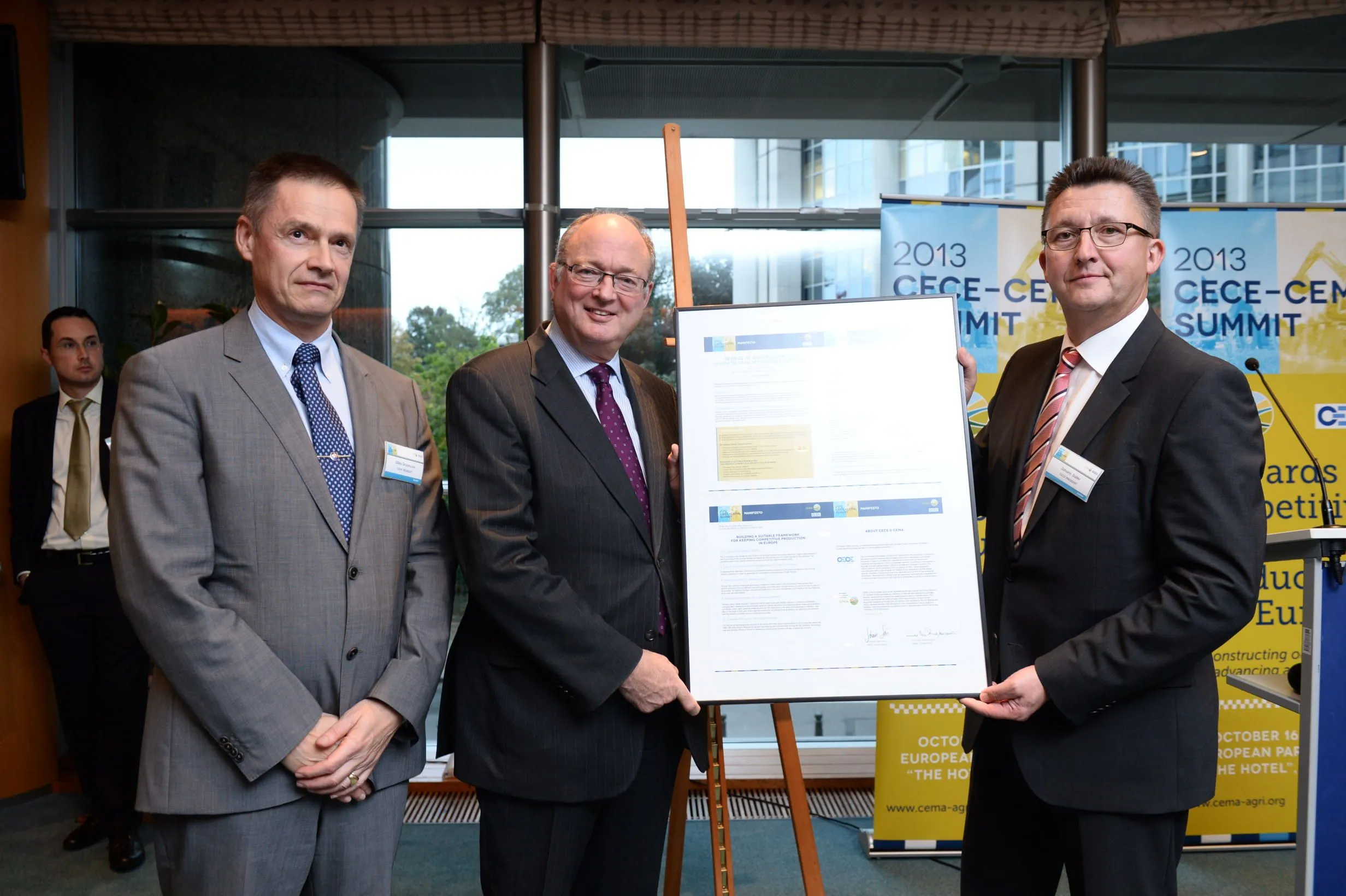According to the European Construction Industry Federation, FIEC, there is light at the end of the tunnel in terms of market activity. The FIEC estimates a decline of 2.3% in overall EU construction activity in 2013 but forecasts stabilisation of in 2014 with market gains of 0.1% expected overall. “There can be no growth without investment!” warned FIEC vice president Jacques Huillard, responsible for economic issues. He presented FIEC’s annual statistics prior to the FIEC’s Congress. “The policy of austeri
June 16, 2014
Read time: 3 mins
According to the 6164 European Construction Industry Federation, FIEC, there is light at the end of the tunnel in terms of market activity. The FIEC estimates a decline of 2.3% in overall 3287 EU construction activity in 2013 but forecasts stabilisation of in 2014 with market gains of 0.1% expected overall. “There can be no growth without investment!” warned FIEC vice president Jacques Huillard, responsible for economic issues. He presented FIEC’s annual statistics prior to the FIEC’s Congress. “The policy of austerity which has been in favour for the last few years has done enormous damage both to the real economy in general and to the construction sector in particular. This is why we have been constantly calling on the political decision-makers to see sense, Huillard continued. “And this is also the core message of our Manifesto for the 2014-2019 term of office of the new European MPs and Commissioners.”
“Against this background, we are delighted to notice that some EU Member States are starting to backtrack on the idea that blind austerity policy can solve all of the problems relating to the recession,” said Huillard, “Although investment in infrastructure and access to credit for businesses are still thorny issues, in a certain number of countries we are seeing measures designed to offer families access to housing, for instance, and these measures have benefitted the residential sector.”
“All in all, EU total construction output amounted to €1,162 billion in 2013, which represents a decline of 2.3% compared to 2012”, reported Huillard. “But there may be light at the end of the tunnel, as activity should at least stabilise from 2014.”
According to FIEC’s statistics, developments in the EU show that a reduction in construction activity has been observed once again in all segments and in most Member States. Again, the general downturn in activity has had a further negative impact on the number of people employed in the sector. During 2013, employment in construction fell for the 6th consecutive year in the EU by 4.1%. But the construction industry remains one of the major engines of Europe’s growth. It represents 8.8% of EU GDP and 2.9 million enterprises. Construction also provides jobs to 13.8 million workers, which represents 6.4% of Europe’s Total employment, not including the indirect employment generated in related sectors.
“More than ever, FIEC calls on European and national decision makers to take into consideration the potential contribution of the construction industry to EU growth, when deciding on structural and fiscal reforms or budget cuts,” added Huillard.
“Against this background, we are delighted to notice that some EU Member States are starting to backtrack on the idea that blind austerity policy can solve all of the problems relating to the recession,” said Huillard, “Although investment in infrastructure and access to credit for businesses are still thorny issues, in a certain number of countries we are seeing measures designed to offer families access to housing, for instance, and these measures have benefitted the residential sector.”
“All in all, EU total construction output amounted to €1,162 billion in 2013, which represents a decline of 2.3% compared to 2012”, reported Huillard. “But there may be light at the end of the tunnel, as activity should at least stabilise from 2014.”
According to FIEC’s statistics, developments in the EU show that a reduction in construction activity has been observed once again in all segments and in most Member States. Again, the general downturn in activity has had a further negative impact on the number of people employed in the sector. During 2013, employment in construction fell for the 6th consecutive year in the EU by 4.1%. But the construction industry remains one of the major engines of Europe’s growth. It represents 8.8% of EU GDP and 2.9 million enterprises. Construction also provides jobs to 13.8 million workers, which represents 6.4% of Europe’s Total employment, not including the indirect employment generated in related sectors.
“More than ever, FIEC calls on European and national decision makers to take into consideration the potential contribution of the construction industry to EU growth, when deciding on structural and fiscal reforms or budget cuts,” added Huillard.







